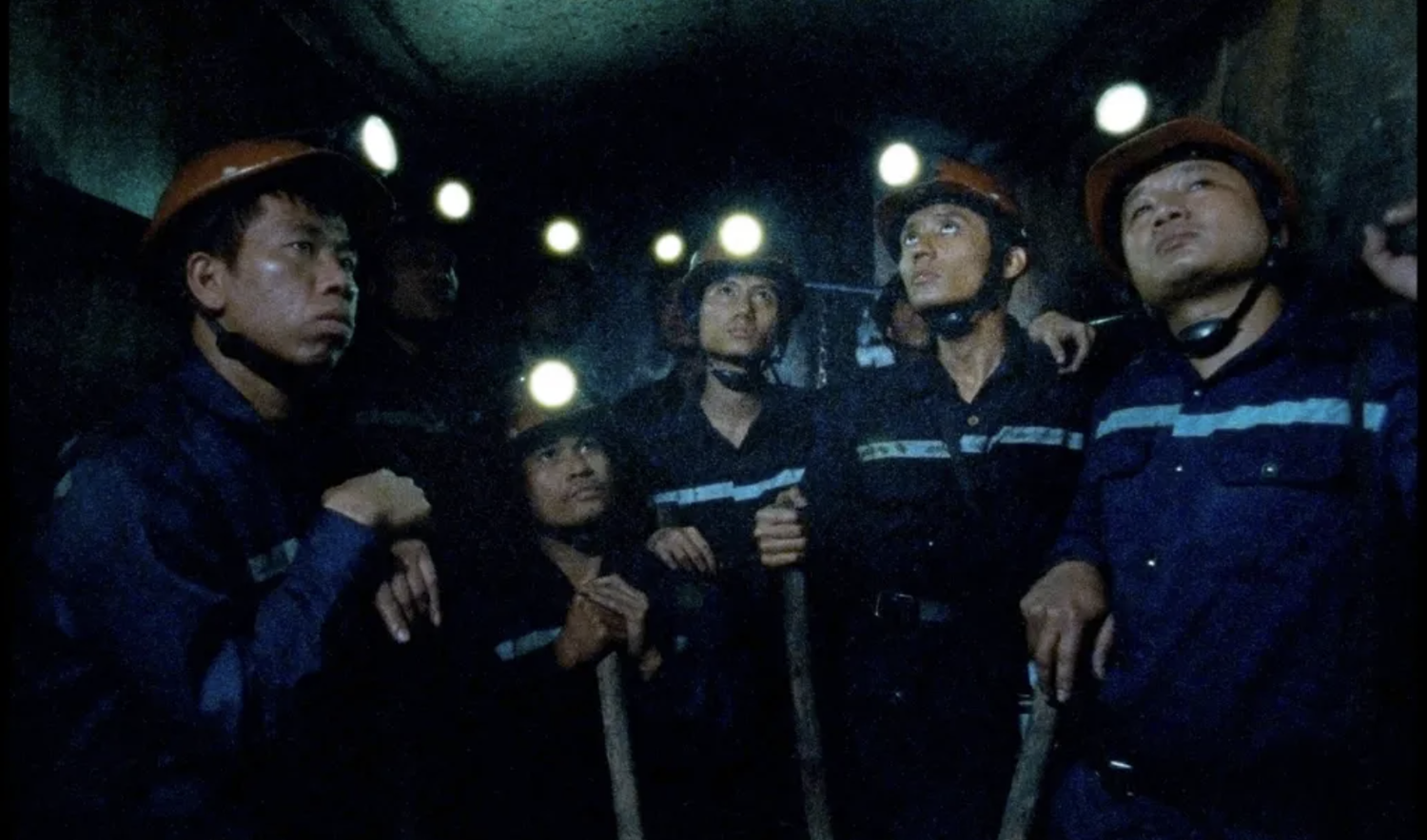
News
News Flash: Memory Shop and Anime Zakka to Open in Harvard Square

News
Harvard Researchers Develop AI-Driven Framework To Study Social Interactions, A Step Forward for Autism Research

News
Harvard Innovation Labs Announces 25 President’s Innovation Challenge Finalists

News
Graduate Student Council To Vote on Meeting Attendance Policy

News
Pop Hits and Politics: At Yardfest, Students Dance to Bedingfield and a Student Band Condemns Trump
Artist Profile: Truong Minh Quý on Weaving Identity into Independent Film Productions

At just 34, Vietnamese filmmaker Truong Minh Quý has directed nine productions, a blend of short films and movies. His most recent project, an LGBTQ+ romantic drama featuring two coal miners named Việt and Nam, premiered at the 2024 Cannes Film Festival in the Un Certain Regard category. It was released theatrically in France on Sept. 25, 2024.
Starting his career in 2008, he faced limited opportunities as a young artist in Vietnam. At 18, he struggled to choose between the two major film schools in the country — one located in Hanoi, the other in Ho Chi Minh City. Opting for the latter to stay close to his hometown and go to his dream school, he enrolled in a three-year program. After a year, he found that the school didn’t meet his expectations. As he described in his recent interview with The Crimson, it was then that he understood that Vietnam’s film industry lacked the infrastructure to support his aspirations.
At the beginning of his second year, Truong experienced what he described as a “crisis moment.” He questioned the purpose of his work. His solution was drastic: he quit film school.
“It was a very idealistic way of thinking,” he recalled. “That if I quit film school and I put myself in an uncomfortable situation, when I had no diploma, I only had one way to move on, which was making films.”
Truong moved to France at the end of 2019, and, even from a distance, he continues to view his productions as Vietnamese stories. While some might question the authenticity of Truong’s depictions of Vietnam, he sees it differently.
“Somehow, naturally, it forces you to go deeper into your memories," he said. “To search in your memories to write.”
Truong’s latest film, “Việt and Nam,” reflects that introspection being put together right after his move to France. Shooting the second of his films on 16mm film, Truong felt like that medium was the natural choice.
“I think if a filmmaker has the chance to shoot on film, we should,” he explained. “It creates this timeless look.”
For him, working with film rejects modern trends and emphasizes a hands-on, tactile process.
“It can keep this tradition of cinema, of filmmaking, alive,” he said.
While the visual choices and creation of the film were straightforward, the nationality of the film “Việt and Nam” is somewhat ambiguous. Since its release, the film has been banned in Vietnam, and Truong had to sidestep Vietnam’s stringent censorship laws to submit the project to Cannes.
“If we think in terms of finance and production wise, it is the Philippines',” Truong said. “But of course, because the director of this film is Vietnamese and shot in Vietnam, and it has a Vietnamese story, and the film speaks Vietnamese language. So it is natural that the film is considered a Vietnamese film.”
The process of censorship in Vietnam is an extensive one, with productions having to receive permission from the government to participate in film festivals prior to undergoing a formal selection process. This extensive ordeal took an emotional toll on Truong.
“There are parts of the public that didn’t watch the film, but have a different image of the film that is strong. It creates certain controversies that I think are rather regretful,” he said.
It is every director’s dream to have their film premiere at Cannes, especially for independent filmmakers who spend upwards of four years on a single production. Truong was ecstatic to hear that his film was chosen. But the opportunity also left him feeling an immense pressure.
“The media in the West, when they look at my film, they see that it is representative of Vietnamese film and also for the region, for Southeast Asia,” he said.
The burden of being a representative Vietnamese artist and filmmaker weighs heavily on Truong at times. He has struggled to balance the freedom he has as an artist while holding a responsibility to consider the history and trauma he discusses in his work.
“It's there before you and it will continue, this narrative about Vietnam,” Truong said.
Truong shared his one main goal for the film.
“Making this film is a way for me to face the struggle or dilemma I mentioned earlier, and hopefully I can find a certain consolation to that struggle,” he said.
Truong remains undecided about his next project, but he is eager to continue to grow as a filmmaker. For now, the audience will just have to wait patiently as Truong crafts his next head-turning masterpiece that is sure to wow the world yet again.
—Staff writer Emma D.D. Pham-Tran can be reached at emma.phamtran@thecrimson.com.
Want to keep up with breaking news? Subscribe to our email newsletter.
From Our Advertisers

Over 300+ courses at prestigious colleges and universities in the US and UK are at your disposal.

Where you should have gotten your protein since 1998.

Serve as a proctor for Harvard Summer School (HSS) students, either in the Secondary School Program (SSP), General Program (GP), or Pre-College Program.

With an increasingly competitive Law School admissions process, it's important to understand what makes an applicant stand out.

Welcome to your one-stop gifting destination for men and women—it's like your neighborhood holiday shop, but way cooler.

HUSL seeks to create and empower a community of students who are seeking pathways into the Sports Business Industry.
